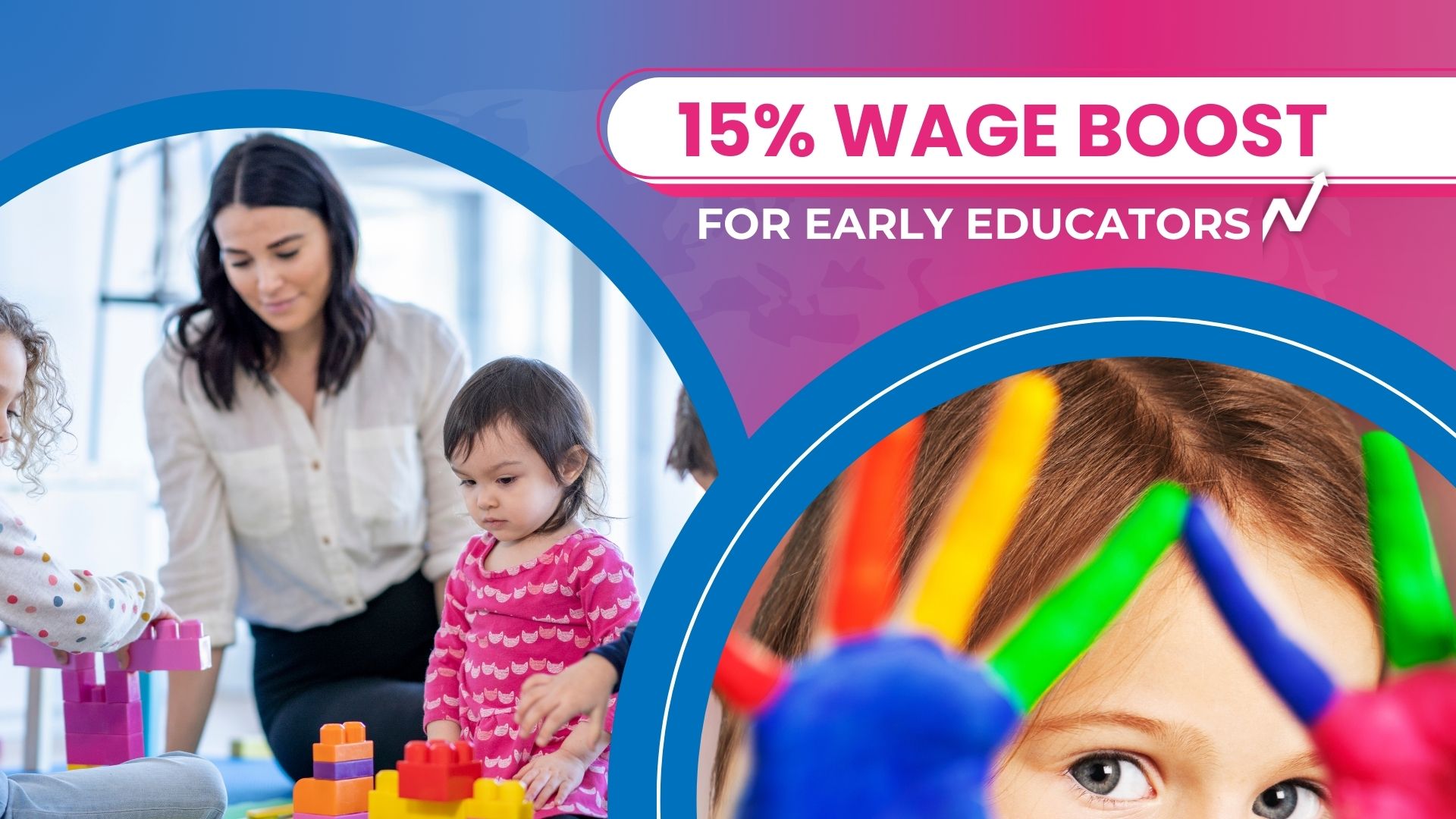15% Wage Boost for Early Childhood Educators:
The Albanese Government is set to make a transformative impact on Australia’s early childhood education sector. In a move designed to recognize the critical contributions of early educators, the government has announced a significant 15% wage increase, ensuring that these professionals are compensated fairly for their essential work. What’s more, this initiative will prevent any additional cost burden on families, marking a balanced approach to supporting both educators and parents.
Phased Wage Increase
The government plans to phase in the 15% wage increase over two years. The first 10% boost will take effect in December 2024, followed by an additional 5% in December 2025. For a typical early educator, this translates to an immediate increase of at least $103 per week starting in 2024, with the total increase reaching $155 per week by the end of 2025.
Currently, the award rate for a standard full-time week is $1,032. With the initial 10% pay rise, this will climb to $1,135 per week. By December 2025, with the full 15% increase implemented, early educators will see their weekly earnings rise to $1,187. This significant pay boost is a long-overdue acknowledgment of the value early educators bring to society, particularly in shaping the lives of young children during their formative years.
Affordability for Families
While the wage increase is a positive development for educators, the government is equally committed to ensuring that families do not face higher costs as a result. To this end, Child Care Centres will be required to limit fee increases to no more than 4.4% over the next year. This measure is crucial in maintaining the affordability of early education for Australian families, ensuring that the benefits of the wage boost do not come at the expense of parents and caregivers.
The cap on fee increases is part of a broader strategy to balance the interests of all stakeholders in the early education sector. By controlling costs, the government aims to keep early education accessible to all families, particularly those from lower-income backgrounds, who might otherwise struggle with rising fees.
Strengthening the Workforce
One of the primary goals of this wage increase is to address the challenges of workforce retention and recruitment in the early childhood education sector. The sector is predominantly staffed by women, many of whom have historically been underpaid despite the critical nature of their work. By improving wages, the government is taking a significant step toward closing the gender pay gap and ensuring that early educators receive the respect and remuneration they deserve.
Moreover, this pay increase is expected to make the profession more attractive to new talent, helping to build a robust and sustainable workforce for the future. With higher wages, the sector can retain experienced educators while also drawing in newcomers who are passionate about early childhood education. This, in turn, will lead to improved quality of care and education for young children across the country.
A Broader Vision
The 15% wage boost is not just an isolated policy; it is part of the Albanese Government’s broader vision for the future of early childhood education in Australia. This vision includes the development of a universal early education system that is accessible, high-quality, and equitable. By investing in early educators, the government is laying the groundwork for a more productive society, where all children have the opportunity to thrive from the very start of their lives.
Become an Early Childhood Education Worker
If you’re inspired by the dedication of early childhood educators and the recent wage increases, pursuing a career in early childhood education might be the right path for you. This role offers the opportunity to make a real difference in the lives of young children, helping them develop crucial social, emotional, and cognitive skills that will shape their futures.
To get started, consider enrolling in a course like CHC30121 – Certificate III in Early Childhood Education and Care or CHC50121 – Diploma of Early Childhood Education and Care. These qualifications will equip you with the skills needed to succeed in this rewarding profession, covering topics such as child development, health and safety, and effective communication with children and families.
For more details on how to pursue a career in early childhood education, check out our blog “How to Get a Job in Early Childhood Education?”.
If you have any questions or you are looking to make an enquiry, feel free to Contact Us.







